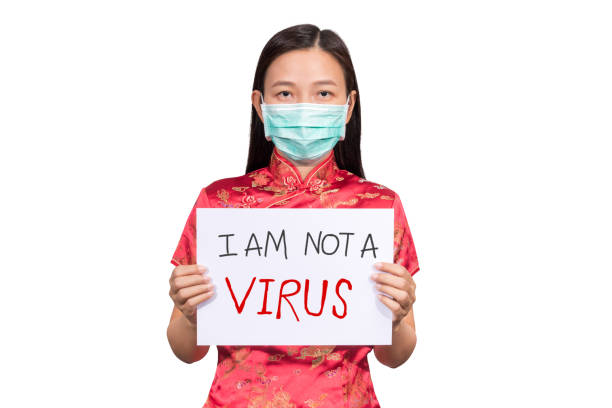Coronavirus Worldwide: Unraveling the Global Impact of a Persistent Threat
In late 2019, an unprecedented viral outbreak emerged in the city of Wuhan, China, sending shockwaves across the globe. This new coronavirus, named SARS-CoV-2, quickly led to a pandemic that reshaped the way the world operates. From public health to economies, individual lives to international relations, the coronavirus has left an indelible mark on every facet of society.
The initial days of the outbreak were characterized by uncertainty and rapidly increasing case numbers. The virus swiftly spread to neighboring countries and eventually reached every continent, prompting the World Health Organization (WHO) to declare a pandemic in March 2020. This declaration marked the urgency with which countries needed to respond to contain the virus's spread and mitigate its impacts.
Governments worldwide implemented a range of measures to curb the transmission of the virus. Lockdowns, travel restrictions, mask mandates, and social distancing became the norm in many places. The objective was to "flatten the curve," slowing down the rate of infection to prevent overwhelming healthcare systems. While these measures were effective in some regions, they also brought about economic hardships, job losses, and disruptions to education.
The pandemic revealed the vulnerabilities of global health systems. Healthcare professionals worked tirelessly on the frontlines, often under dire conditions, to treat the infected and develop a deeper understanding of the virus. Medical researchers raced to understand SARS-CoV-2's biology, mode of transmission, and potential treatments. The unprecedented collaborative effort led to the rapid development of several vaccines, offering a ray of hope in the fight against the virus.
The distribution and administration of vaccines, however, exposed global inequalities. Wealthier nations secured early access to vaccines, while low-income countries struggled to obtain sufficient doses. This disparity highlighted the need for international cooperation and equitable vaccine distribution to achieve widespread immunity and truly overcome the pandemic.
The coronavirus also ignited debates about personal freedoms versus collective well-being. Mask mandates and vaccination requirements raised questions about the balance between individual choice and public health imperatives. These discussions mirrored broader societal debates about misinformation, scientific literacy, and the role of social media in shaping public opinion.
Economically, the pandemic spurred both innovation and devastation. Businesses pivoted to remote work and digital solutions, while industries such as travel, hospitality, and entertainment suffered severe setbacks. Governments implemented stimulus packages to cushion the economic impact, but these measures also raised concerns about long-term financial sustainability.
The pandemic's effects were not confined to healthcare and the economy. Mental health came to the forefront as people grappled with isolation, uncertainty, and grief. Educational systems underwent massive transformations, with remote and hybrid learning becoming the new norm. The pandemic prompted a reevaluation of societal priorities, highlighting the importance of resilient healthcare systems, social safety nets, and global cooperation.
Geopolitical tensions simmered as well. Accusations and blame games between nations underscored the need for international collaboration in the face of a global crisis. The pandemic demonstrated that challenges like the coronavirus cannot be tackled in isolation, emphasizing the significance of multilateralism and diplomacy.
As the world entered subsequent phases of the pandemic, new virus variants emerged, adding complexity to the fight against the virus. The effectiveness of vaccines against these variants remained a topic of ongoing research and concern. Booster shots and updated vaccine formulations became part of the global conversation, raising questions about the future trajectory of the pandemic.
In conclusion, the coronavirus pandemic has left an enduring impact on every corner of the world. From its rapid spread to the challenges of vaccine distribution, from economic upheavals to societal transformations, the pandemic underscored the interconnectedness of our global community. While the initial chaos has given way to adaptation and resilience, the lessons learned from this crisis will continue to shape our responses to future challenges. The coronavirus pandemic has redefined our understanding of public health, science, politics, and the very essence of what it means to be a global citizen.
In late 2019, an unprecedented viral outbreak emerged in the city of Wuhan, China, sending shockwaves across the globe. This new coronavirus, named SARS-CoV-2, quickly led to a pandemic that reshaped the way the world operates. From public health to economies, individual lives to international relations, the coronavirus has left an indelible mark on every facet of society.
The initial days of the outbreak were characterized by uncertainty and rapidly increasing case numbers. The virus swiftly spread to neighboring countries and eventually reached every continent, prompting the World Health Organization (WHO) to declare a pandemic in March 2020. This declaration marked the urgency with which countries needed to respond to contain the virus's spread and mitigate its impacts.
Governments worldwide implemented a range of measures to curb the transmission of the virus. Lockdowns, travel restrictions, mask mandates, and social distancing became the norm in many places. The objective was to "flatten the curve," slowing down the rate of infection to prevent overwhelming healthcare systems. While these measures were effective in some regions, they also brought about economic hardships, job losses, and disruptions to education.
The pandemic revealed the vulnerabilities of global health systems. Healthcare professionals worked tirelessly on the frontlines, often under dire conditions, to treat the infected and develop a deeper understanding of the virus. Medical researchers raced to understand SARS-CoV-2's biology, mode of transmission, and potential treatments. The unprecedented collaborative effort led to the rapid development of several vaccines, offering a ray of hope in the fight against the virus.
The distribution and administration of vaccines, however, exposed global inequalities. Wealthier nations secured early access to vaccines, while low-income countries struggled to obtain sufficient doses. This disparity highlighted the need for international cooperation and equitable vaccine distribution to achieve widespread immunity and truly overcome the pandemic.
The coronavirus also ignited debates about personal freedoms versus collective well-being. Mask mandates and vaccination requirements raised questions about the balance between individual choice and public health imperatives. These discussions mirrored broader societal debates about misinformation, scientific literacy, and the role of social media in shaping public opinion.
Economically, the pandemic spurred both innovation and devastation. Businesses pivoted to remote work and digital solutions, while industries such as travel, hospitality, and entertainment suffered severe setbacks. Governments implemented stimulus packages to cushion the economic impact, but these measures also raised concerns about long-term financial sustainability.
The pandemic's effects were not confined to healthcare and the economy. Mental health came to the forefront as people grappled with isolation, uncertainty, and grief. Educational systems underwent massive transformations, with remote and hybrid learning becoming the new norm. The pandemic prompted a reevaluation of societal priorities, highlighting the importance of resilient healthcare systems, social safety nets, and global cooperation.
Geopolitical tensions simmered as well. Accusations and blame games between nations underscored the need for international collaboration in the face of a global crisis. The pandemic demonstrated that challenges like the coronavirus cannot be tackled in isolation, emphasizing the significance of multilateralism and diplomacy.
As the world entered subsequent phases of the pandemic, new virus variants emerged, adding complexity to the fight against the virus. The effectiveness of vaccines against these variants remained a topic of ongoing research and concern. Booster shots and updated vaccine formulations became part of the global conversation, raising questions about the future trajectory of the pandemic.
In conclusion, the coronavirus pandemic has left an enduring impact on every corner of the world. From its rapid spread to the challenges of vaccine distribution, from economic upheavals to societal transformations, the pandemic underscored the interconnectedness of our global community. While the initial chaos has given way to adaptation and resilience, the lessons learned from this crisis will continue to shape our responses to future challenges. The coronavirus pandemic has redefined our understanding of public health, science, politics, and the very essence of what it means to be a global citizen.




